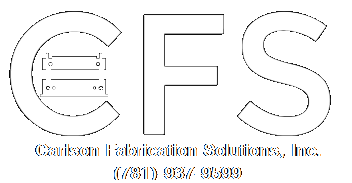Press Brakes are changing
When a company’s operations are trying to replace old press brakes of their fabrication business, there is always confusion about what press brake to buy. The reason for this confusion is not far-fetched; it is because of the varying technological advancements in press brakes that exist in our market today.
Currently, there are electric, hybrid, and traditional hydraulic press brakes. Each of these type of brakes has their pros and cons which, if looked at critically, can help you get the press brake that suits your needs perfectly. In this piece, we will focus more on the standard electric brake vs hydraulic press brake.
ELECTRIC VS HYDRAULIC PRESS BRAKES
1. POWER CONSUMPTION AND EFFICIENCY:
Experts say that electric press brakes use about two times the electrical energy as hydraulic brakes do to deliver the same tonnage. However, the hydraulic motors, pumps, and oil used by hydraulic press brake for its operation keep the machine constantly running even when it is idle. Therefore, electric brakes are more efficient and are considered to consume less power because the motor is used only during bending and turns off while the machine is on idle.
2. COST:
Maintenance of hydraulic brakes such as changing of oil and filter, fixing of seal and line leaks, etc. make it expensive to use hydraulic press brakes. As well as this, due the variable viscosity of the oil used by the hydraulic press, the angle you get at the beginning of the day may differ from what you get at the close of day. This can result in more scrap being developed by the machine, as more trials are necessary for the same bend. Also, the continuous energy consumed by the gear pump during the machine’s idle time will add to the cost of using hydraulic press brakes. In order to be more efficient, some people install energy-saving enhancements, such as timers and variable displacement pumps. These halt the main motor during the idle time to reduce costs, and are an addition that should to be put into consideration when buying a hydraulic brake.
3. SPEED:
Hydraulic press machines have a faster approach speed compared to electric press but have slower ram acceleration and deceleration into positioning because of the oil-powered motor. Hence, the Electric press has a quicker output as it has a higher bending speed.
4. ENVIRONMENTAL POLLUTION:
We already stated the fact that hydraulic pumps work continuously even when the machine is turned off. If you’re looking for fuel efficiency and cleaner energy, hydraulic pumps would not be the best option here. As well as this, for noise pollution, the hydraulic press will make noise all day as long as it is turned on. Electric presses are silent when they are not in use, and the only sound you hear when they are in use is that of the spinning ball screw. For immediate environmental concerns, hydraulic presses (while not often) can also cause oil spillages in the fabricator shop – which can have detrimental effects to the local community. These features, coupled with the less power consumed by Electric press brakes, make them considered to be more eco-friendly than the traditional hydraulic press brakes.
5. ACCURACY:
Electric press brakes have higher precision than hydraulic press brakes. Expert says that electric press brakes can offer up to an accuracy of 0.000079 inches or 1 micron, while hydraulic press brake can reach an accuracy of 0.0004 inches (10.16 microns). For the most accuracy in the game, check out Mitsubishi’s BB Series Diamond Electric Press Brakes.
The advantage of Hybrid Motors
Hybrids also use hydraulics but instead without gear pumps. They typically use a servo electric drive that controls the flow to the cylinders. On electric press brakes, electric motors control the movement of the ram via belt or gear mechanisms that drive ball screws. Typically, a hybrid or electric press brake can be up to 20 to 30 percent more energy efficient than a traditional hydraulic press brake. Electric machines have relatively high bending speeds, but they are not as fast as hydraulic machines in approach or retraction speed. However, they are a great middle ground between the two types, and can reach accuracy’s of up to 4 microns. Mitsubishi and Adira have partnered up to bring you some of the best press brakes available. While the electric and hybrid models provide their perks, Adira heavy duty brakes are best for high-tonnage applications. For more information, please check out Mitsubishi’s BH Series Diamond Hybrid Press Brakes.
For more information, please email us at info@carlsonfab.com. For all of our press brakes, please click here.
Also See:



![The Science Behind How Fiber Lasers Work [With Mitsubishi]](https://images.squarespace-cdn.com/content/v1/5653419fe4b0280166a0f5ee/1610034462913-HC9N0DMUTB9Z3U0SD25G/ADVANCED+eX-F+Series+Layout.jpg)

